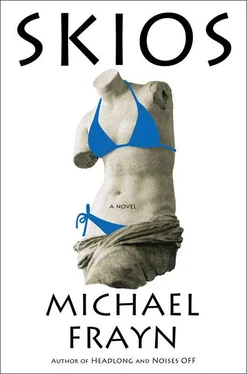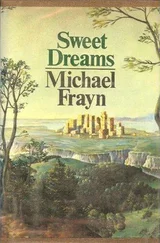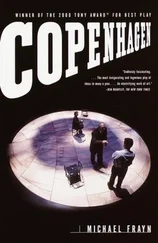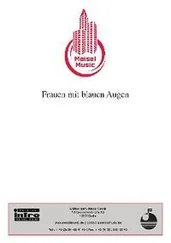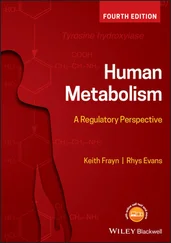Slowly Wilfred took his underpants down from the clothesline and put them on in the shelter of the bathrobe. They were still damp. But then so were his spirits. So, obviously, were Georgie’s as she watched him.
“I’m sorry it wasn’t Oliver,” he said.
“You must be pleased to get your bag back, though.”
Was he? He hadn’t really thought about it. His bag had long lost its central place in his picture of the world.
“And to have a taxi. So you’re going to be able to give your wonderful lecture.”
Yes, he was going to be able to give his wonderful lecture. He put his shirt on. It stuck around his armpits and across the back of his neck.
“It’ll dry out as you go along,” she said. “Anyway, you can put some dry things on in the taxi. Now you’ve got your bag back.”
A thought came to him slowly as he forced the buttons back into the damp buttonholes. If no Oliver …
“You wouldn’t like to come with me?” he said. “To the lecture?”
“What, about how it all goes back to some dot in the middle of nowhere ten thousand years ago?” she said, pulling the towel tighter round her. “Thanks most awfully.”
He put his trousers on. They adhered to him in ways that made it quite awkward to walk.
“Thirteen point seven billion years ago,” he said.
“Oliver?” said Annuka Vos, putting her head into various rooms of the villa. In her impatience she had left her suitcase where the taxi driver had dumped it, outside the gate. There was no response, though, but the ghostly murmur of the air-conditioning. She had thought for a moment that she could hear his voice somewhere … But no, nothing. He seemed to be out. Out where, doing what? Shopping, swimming? Unlikely. Causing trouble of some sort, more probably. It was entirely characteristic of him not to have answered any of her messages. She wouldn’t have been surprised if he hadn’t even read them. Hadn’t known when she was arriving. Or even that she was arriving at all.
God, she was sick of the whole stupid business!
None of her friends could understand why she put up with him. She couldn’t understand it herself. In fact she hadn’t put up with him. She had thrown him out. Three times. And yet here she was, on one last holiday with him yet again. None of her friends could understand how she had got involved with him in the first place. Everyone knew what Oliver Fox was like! She didn’t have to waste her life on people of that sort. She was dark and plump — with the sort of darkness and plumpness that men want to lose themselves in — and there was something fundamentally mysterious about her. No one knew whether she was Finnish or Brazilian. Some said Persian or Latvian, and she didn’t comment, only smiled her dark smile. She could have had anything she wanted in life — a rich husband, six brilliant children, a career in banking. And what she in fact had was Oliver Fox.
Yes, she was a mystery, was Annuka Vos, and to herself most of all.
Still, the villa was everything she had hoped it would be. As her eyes got used to the cool darkness of the interior she began to make a more leisurely tour of inspection, appreciating each room in turn. This was another thing that people failed to understand about her. Unreadable, un-English, yes, but at the same time simple in her tastes and immediate in her responses. She had a natural aesthetic sense, she was a born homemaker. She loved the dark traditional furniture in the living room. Just the kind of thing she would have expected people like Petrus and Persephone to collect for their holiday home, of course. She loved the earthenware pots and plates thrown by Persephone, the watercolors painted by Petrus, the dolls hand sewn by little Petal.
It was entirely characteristic of her relationship with Oliver, of course, that it was friends of hers who had lent them the villa. She shuddered to think where she and Oliver would have ended up if they had had to rely on his finding somewhere. But then if she hadn’t booked the tickets and made all the arrangements they would never have gone anywhere at all. And if she hadn’t happened to have an income from the Vos family trust, and a flat big enough for both of them, the whole thing would have been over months ago.
Which would have been a thoroughly good thing, of course. Everyone said so. She knew it herself. She had been pretty merciless about throwing him out, after all. You don’t throw someone out four times without demonstrating a pretty cool-headed assessment of their shortcomings.
In the big country kitchen she found a note in Petrus’s handwriting inviting her to help herself to anything she could find. Dear Petrus! Oliver had already helped himself, she saw. There, showing up very distinctly against the shining dark stone worktop, was a characteristic little muddle of used packaging and food scraps— wine bottle left uncorked, the curling remains of a pizza, crumpled wrappings from sliced bread and frozen peas, an empty peanut butter jar. She looked in the refrigerator. Nothing. Of course not. He couldn’t even be bothered to go out and buy a few groceries.
She cleared away the mess, found rubber gloves and kitchen spray, and returned the worktop to the shining dark gleam that it would have had when Petrus and Persephone left it. This was another thing that people failed to understand about her. At the heart of her darkness was a simple housewife, who loved nothing better than getting the rubber gloves on and making everything unspoiled and new.
Again she thought she heard a voice. She stopped cleaning to listen. Nothing. But her heart had leapt up for a moment, she realized, and immediately her irritation returned. She should never have come. She had threatened not to often enough. She should have stuck to it.
She went into the bedroom. Bed unmade, of course, and his suitcase open on the floor, spilling out a muddle of T-shirts and chinos. She gave a little hiss of disapproval, possibly Brazilian in origin, possibly Persian, that she knew would have particularly irritated him, if only he had been here to be irritated. She picked up a handful of the T-shirts and sniffed them to see if they were clean. They smelled as if they had been washed, but not by her. And they certainly hadn’t been ironed, either by her or by anyone else.
In the cupboard in the hall she found an iron and ironing board, and set to work.
* * *
“I’ve put your suitcase on the front seat,” said Georgie, “so you can get at some dry clothes as you go along.”
Dr. Wilfred hesitated. “Well,” he said. “Anyway.”
“Off you go, then.”
“Yes … I’d just like to say … Well … Thank you for everything.”
“What — the bread and peas?”
“Everything.” He wanted to mention in particular the two moles on her shoulder blade, but didn’t quite have the nerve.
“So,” she said. “You’ve had a nice little rest. You’re not too burnt. We got your clothes washed and your suitcase back. Haven’t left anything behind? Passport? Credit cards? Phone? The lecture! You’ve got the lecture?”
He unzipped the flight bag and showed her. She held the door of the taxi open for him.
“Or I could wait for a bit,” said Wilfred. “Until Oliver gets here.”
“Wilfred!” She pointed to the lecture.
“Yes…” He took it out of the flight bag and looked at the first page. “It is perhaps particularly appropriate to find myself giving this address here, in the vibrant and bustling city of Kuala Lumpur.” No, that was deleted. “… in the great open spaces of Western Australia…”
He looked at her. “You really wouldn’t like to come and hear it?”
“No, but you really want to go and give it!”
Читать дальше
